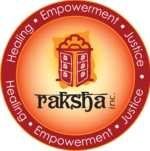February is Teen Dating Violence Awareness Month.
Did you know that the state of Georgia ranks third highest in the nation for the percentage of teens experiencing physical violence in a dating relationship?
Shockingly, 50% of fatalities resulting from intimate partner violence in Georgia happened in relationships that began when the victim was between 13-24. Also, college-aged women (between the ages of 16-24) have the highest per capita rate of intimate partner violence! (Source: PADV)
Teen dating violence (physical, emotional, verbal) is as likely to occur as intimate partner violence among adults is. Sadly, it has higher chances of being under-reported as well.
The chances of under-reporting are higher in communities that do not traditionally encourage dating. Second or third generation South Asian youth are particularly at risk due to numerous reasons, mainly, the cultural stigmas associated with dating in the teens or dating only to marry. The age-old conservatism around dating is rooted in the shame associated with “allowing kids to date young a.k.a. before marriage” comes with complete denial (“girls/ boys from good families don’t shame the family”) or lack of communication (“we don’t talk about dating/ sex in our families“). Then, there are parental expectations around focusing on academic achievement, dating to marry or dating “within the community”. Scrutiny in the name of culture, as some may argue, might end up offering some protection in some cases. However, in cases where teens still date, the rules and scrutiny that are supposed to protect could lead to lack of communication around healthy relationships and severe under-reporting in case of dating violence.
The risks seem to be amplified among LGBTQ teens and youth. Recent studies have shown that LGBTQ youth are more prone to teen dating violence and to depression and suicidality.
With schooling and socialization moving increasingly to virtual platforms, it becomes critical to learn ways to identify, support teens and youth going through relationship abuse, trauma or for that matter, to know how to communicate and have conversations with teens about healthy relationships.
Here’s a handy resource list you can share or keep with hotlines, community resources and information you may need to have that conversation, help someone or show allyship.
Resource List: Teen Dating Violence Awareness 2021
Event Summary: South Asian youth voices on teen dating violence and healthy relationships – Friday, February 19, 2021 on Facebook Live and Youtube.
Friday (2/19/21)
Raksha, hosted a discussion in honor of Teen Dating Violence Awareness month (TDVAM) with a goal to bring attention to barriers and challenges that could influence dating violence and healthy relationships in the South Asian community. The event, co hosted by NAAAP (National Association of Asian American Professionals), Atlanta and ATL Q+A, saw an engaging and thought provoking conversation by a youth panel – consisting of students and youth representatives from campuses across Atlanta as well as PADV youth program coordinator cover a spectrum of topics, starting with how dating violence features in South Asian youth groups on college campuses. Panelists pointed to cultural values like honor, family ties, and tight-knit communities both as sources of support for survivors, and as barriers to survivors asking for help. Intersectional identities like LGBTQ South Asians were at the heart of the discussion, as speakers chimed in on how being LGBTQ can distance teens from their community and leave them especially vulnerable to emotional, verbal and physical violence. The speakers identified solutions and ways to address inter-generational cultural conflicts, which in most cases is at the root of the problem. All panelists mentioned the importance of maintaining conversation – however difficult it may be. They emphasized the importance of factoring in generational and language differences, understanding that words that have definitions for young people (for example, dating violence) may not be a part of an older person’s vocabulary.
With this conversation, Raksha hopes to kick off a continuum of conversations by South Asian youth voices. The full dialogue can be viewed on Raksha’s Youtube. More about the speakers is available on the Raksha Instagram (@rakshainc).
———————————–
Panelists included Ovee Gore, Twisha Dimri, Rohan Rajan, Isha Konety, Rupkatha Banerjee, Aiman Shahab, and Jenani Sriyajenthan. Raksha liaison Rukmini Kalamangalam moderated the discussion
